(Re)Born to Be Wild: Coaxing Patagonia Back to Its Natural State
Thanks to a visionary couple and an ever-growing army of volunteers.
(Re)Born to Be Wild: Coaxing Patagonia Back to Its Natural State
Thanks to a visionary couple and an ever-growing army of volunteers.
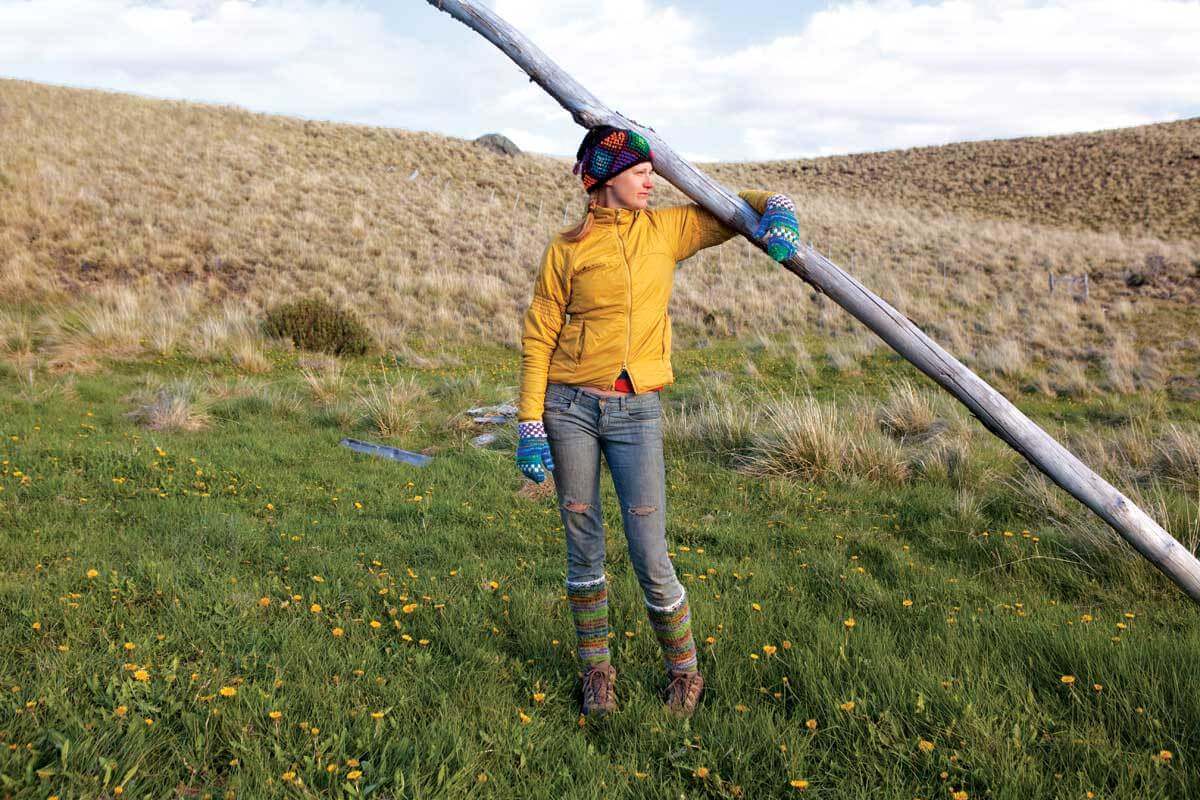
Kris and Douglas Tompkins have spent the past 25 years attempting to undo the damage. Since moving to southern Chile from Northern California, the former outdoor-clothing execs (she was the CEO of Patagonia, Inc.; he founded The North Face) have purchased some two million acres in South America, returning them to biodiverse health. The couple has gifted much of that land to the governments of Chile and Argentina, in the form of protected nature sanctuaries and national parks. Now the Tompkinses, through her nonprofit Conservacion Patagonica (CP), are working on what just may be the largest single grasslands restoration project ever attempted: 650,000 acres in Chile’s Aysén region that will be called Patagonia National Park once completed and donated to the federal government. They aren’t doing it alone.
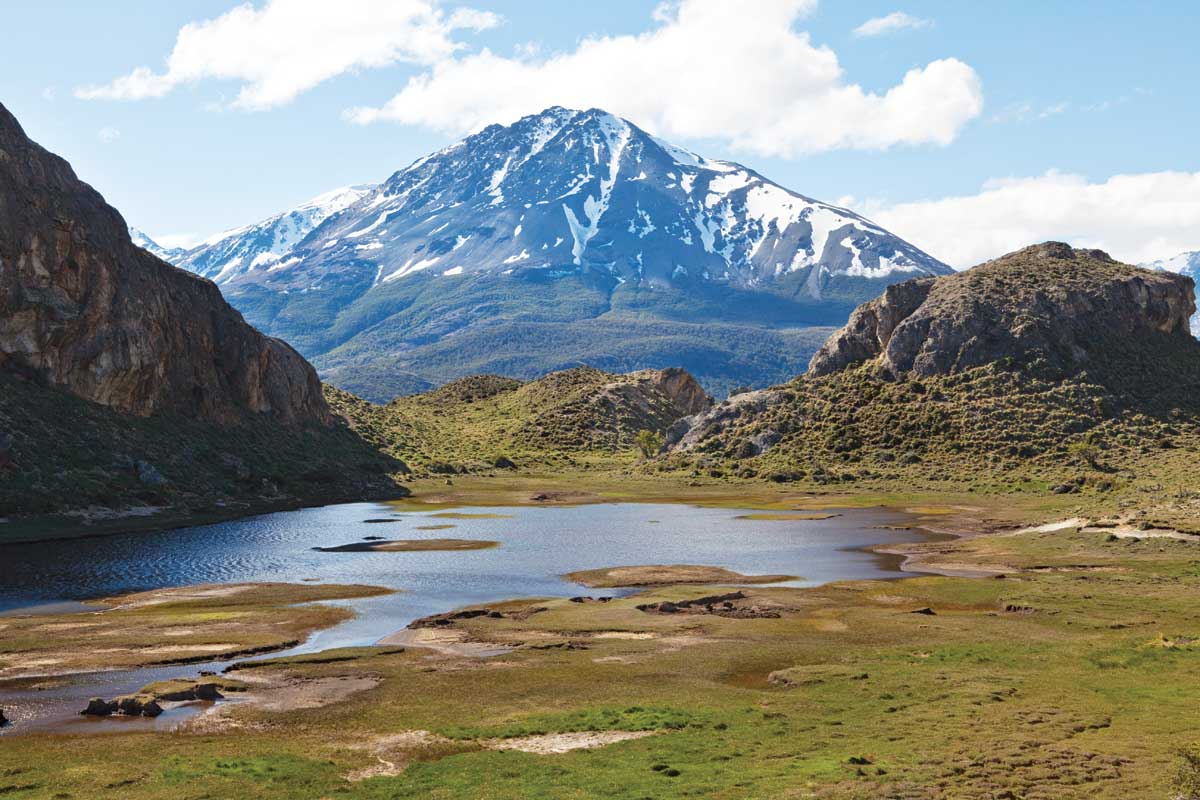
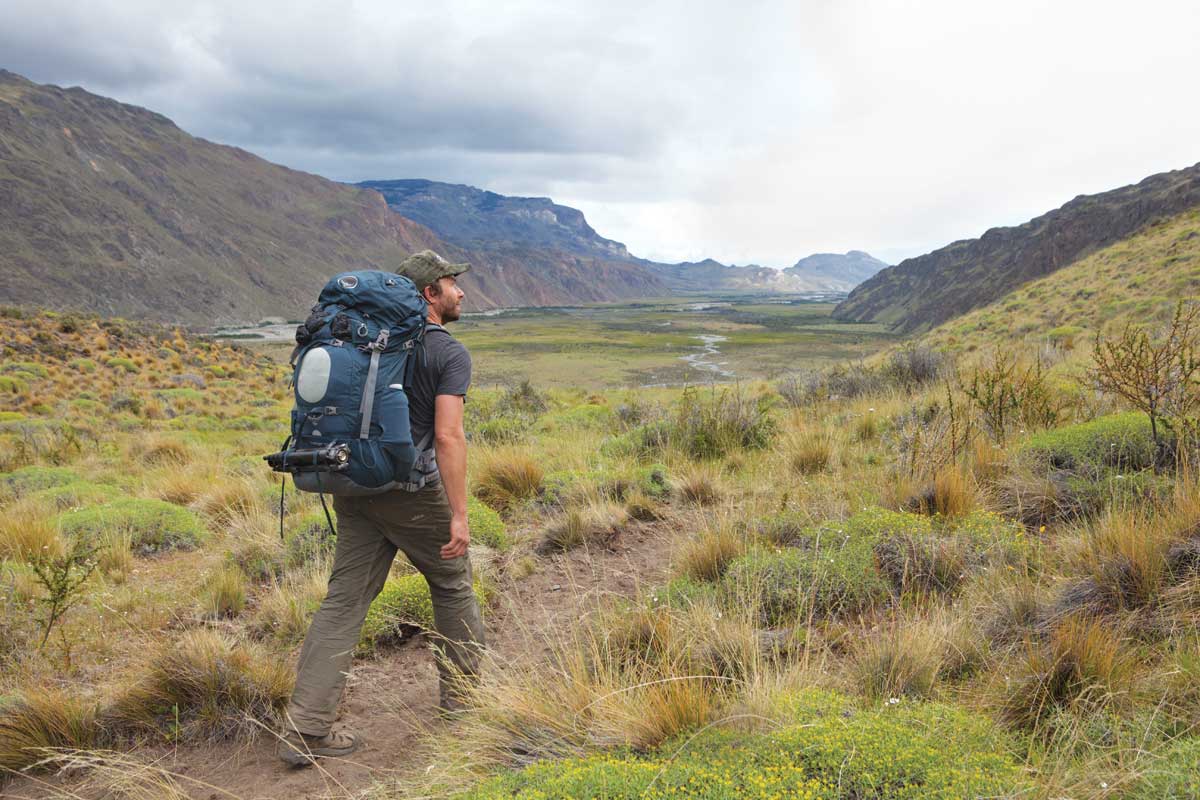
MacArthur Fellow Amory B. Lovins, who co-founded Colorado’s Rocky Mountain Institute, has collaborated with Kris and Douglas to ensure that Patagonia National Park will be both self-sufficient and carbon-neutral. Chilean architect Francisco Morandé Ruiz-Tagle designed the park’s Lodge at Valle Chacabuco, constructed of local stone and recycled wood. (Proceeds from the lodge go back to the park.) Ruiz-Tagle also helped plan the campgrounds, which provide inexpensive access to the public. “You want people to come out and fall in love,” says Kris, “because you won’t protect something unless you love it.”
When CP purchased Estancia Valle Chacabuco to secure its land for the park, the foundation offered jobs to the sheep ranch’s gauchos. The sheep, however, didn’t fare quite so well. Once the estancia’s fences had been removed, the herd started falling prey to pumas and foxes – until the park’s resident veterinarian, Paula Herrera, instituted a guard-dog program. She’s since trained eight litters of Great Pyrenees puppies, raising them alongside the lambs. “We know we can’t keep livestock in a national park, but we’ve had such good results with the dogs that we’ll continue to train them for neighboring ranches,” says Herrera, who also oversees the park’s volunteer efforts.

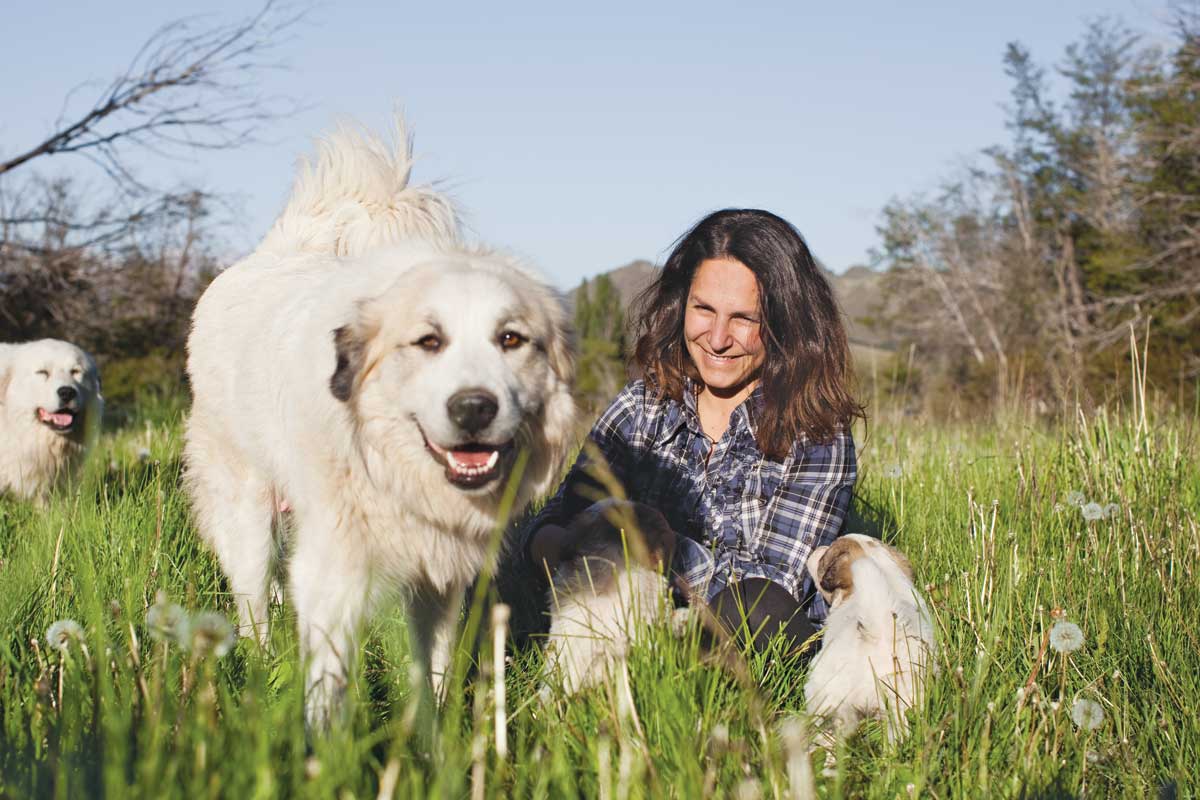
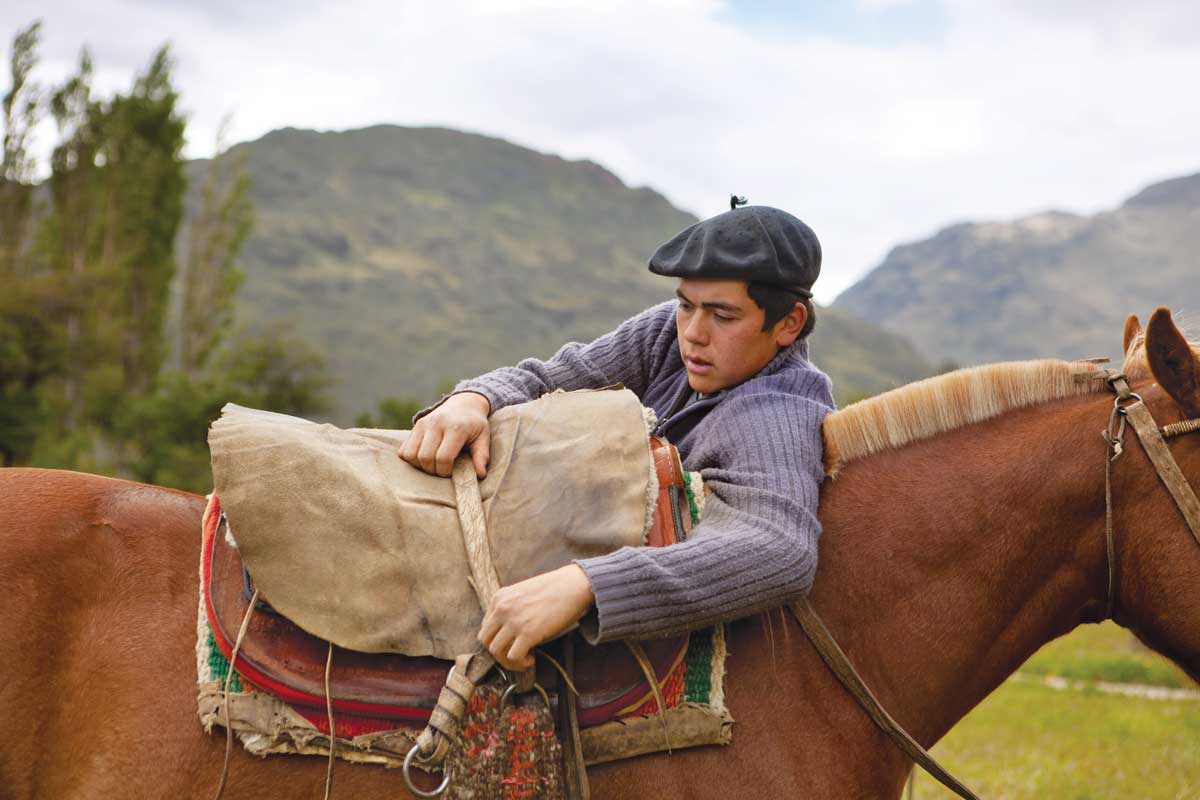
Each year, approximately 70 volunteers (chosen from more than 200 applicants) spend 18 days camped out in the park. Herrera seeks candidates with strong Spanish-language skills, experience living in small groups, and enthusiasm for hard work. Supplies are carried in by horse; tents are pitched near job sites. The volunteers weed, tear down fences, build bridges, and tackle other tasks that “we don’t have the budget to do,” says Herrera. “Our volunteers go out in the world and become ambassadors for the park.”
This year, some of those volunteers will participate in a new initiative, growing fruit, herbs, and vegetables for the lodge’s restaurant, as well as for park employees. “We want to send a strong message that organic agriculture is cost-effective,” says head gardener Francisco Vio. “If it works here in this erratic climate, it can work almost anywhere.” With 30 different crops thriving in 50 raised beds and simple wood-framed greenhouses, Vio aims to show what’s possible. Which pretty much sums up Kris and Douglas Tompkins’ original vision for this rugged and inhospitable – yet completely intoxicating – landscape. “When someone asks me, ‘Why here?’” says Kris, “I answer, ‘Just look around you.’”

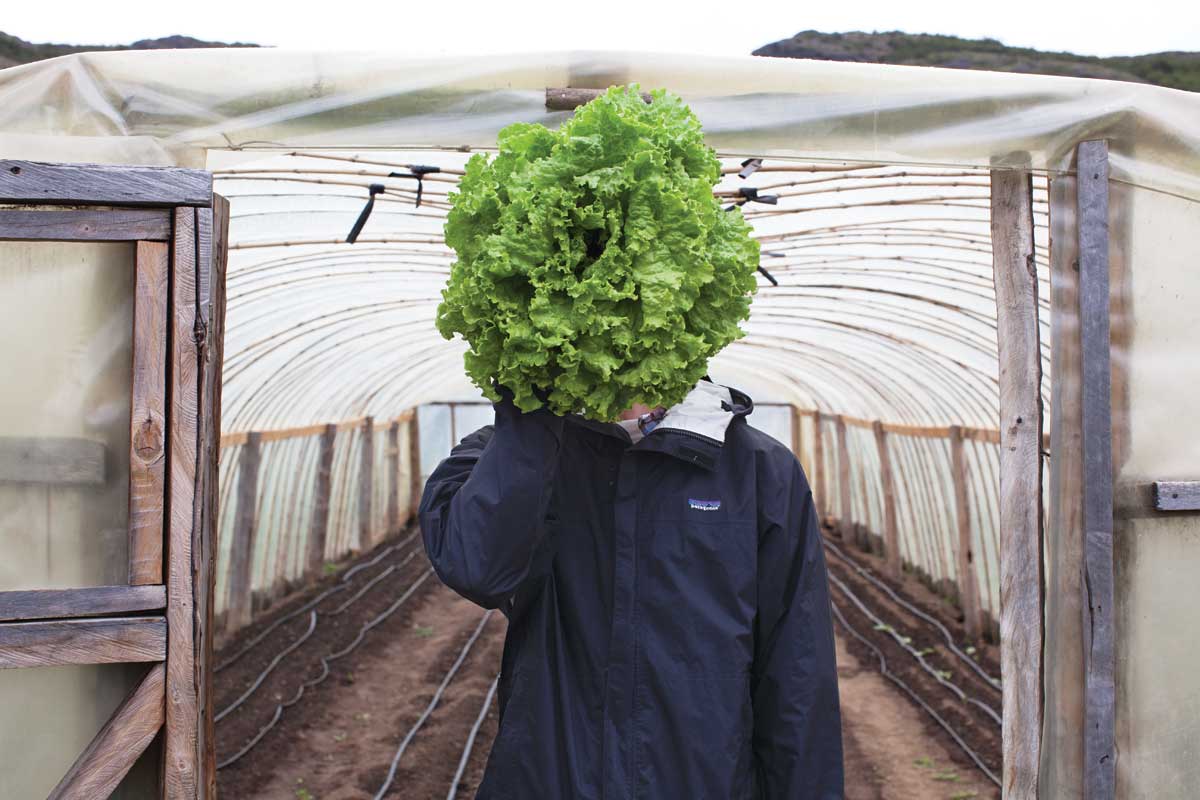
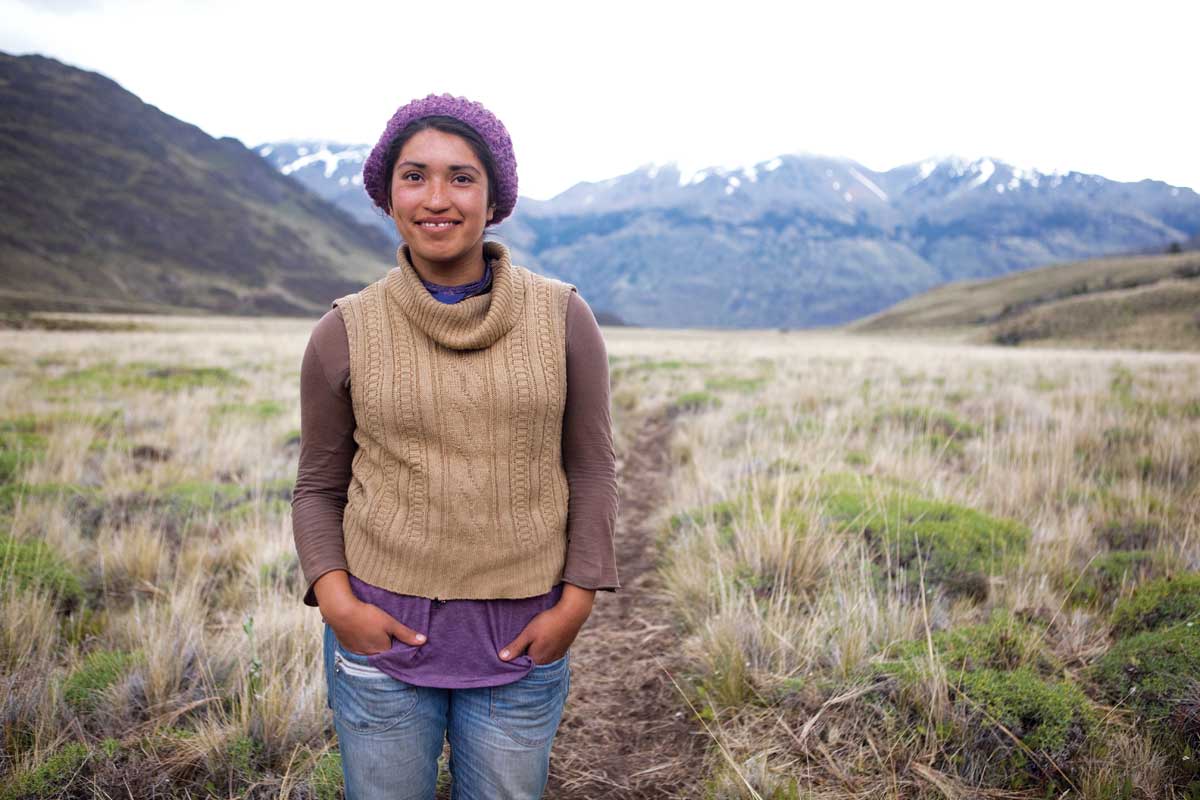
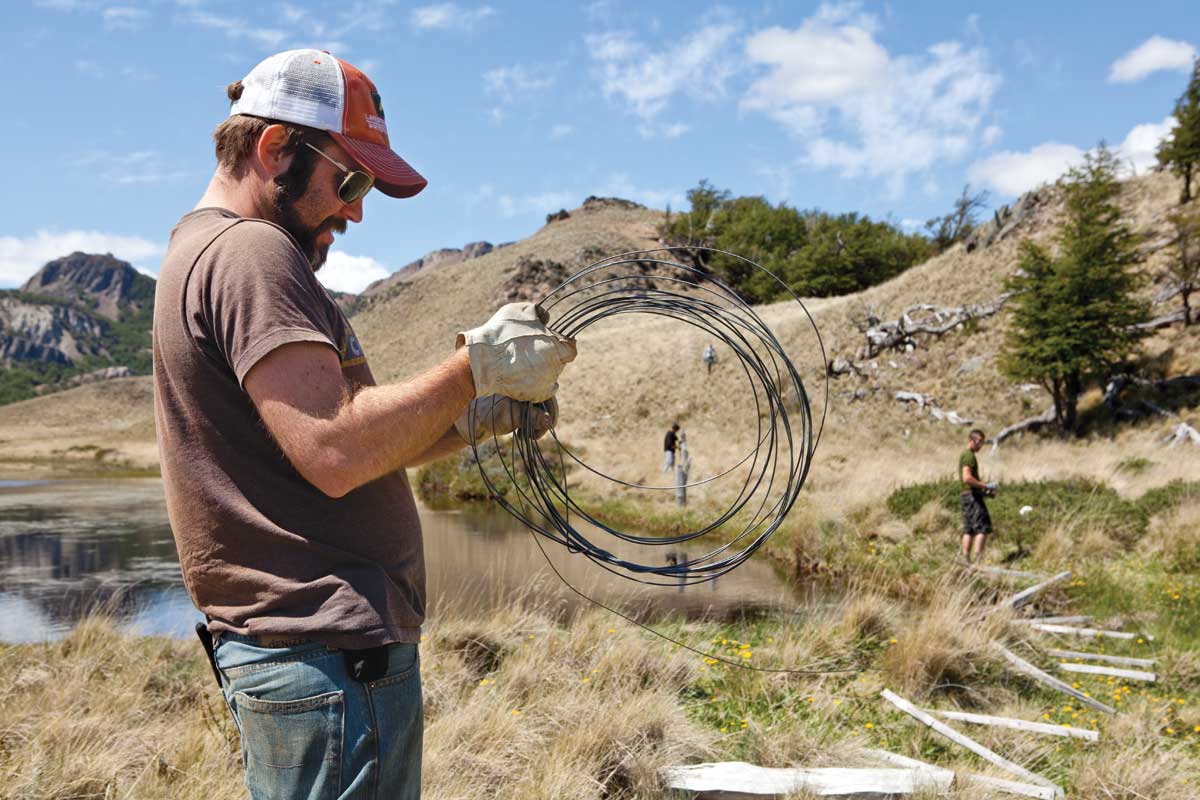
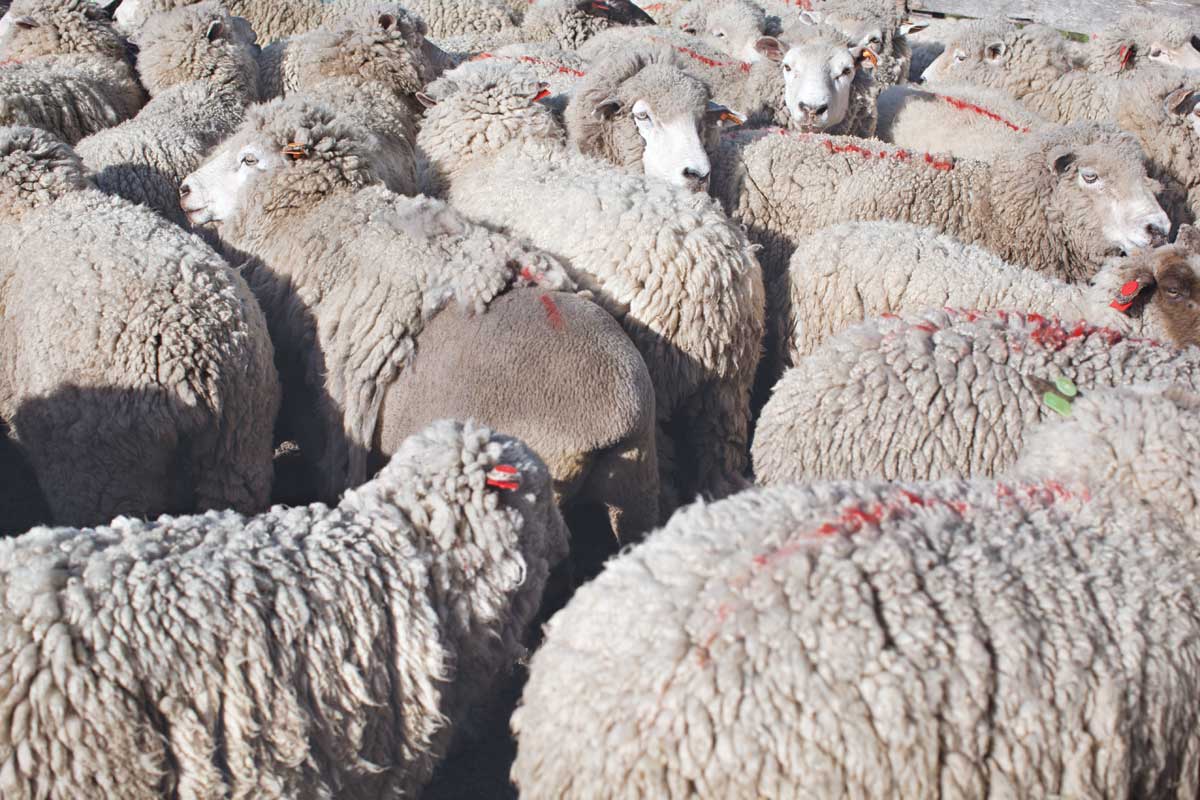
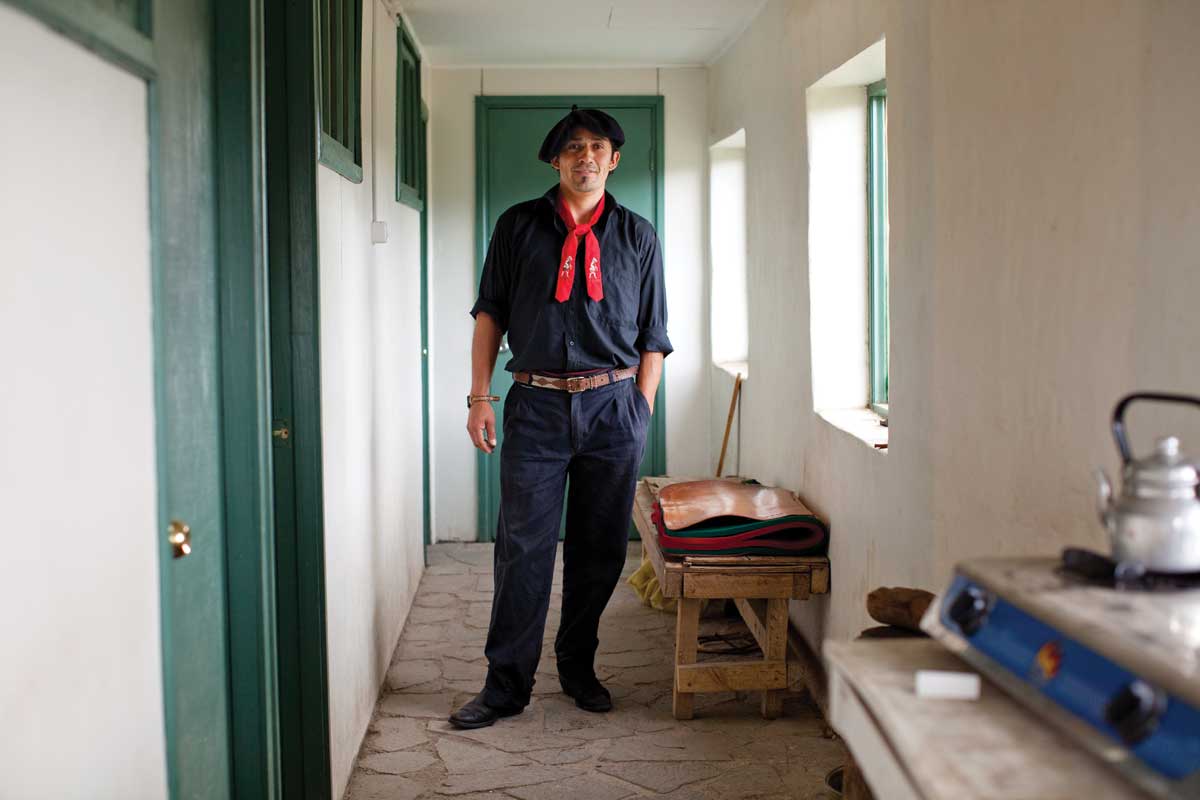

Experiencing the Park
To reach Chile’s Patagonia Park from the capital city of Santiago, hop a puddle-jumper to Balmaceda, then rent a car for the 6-plus-hour drive (south along the Carretera Austral highway) to the park entrance at El Cruce Entrada Baker.
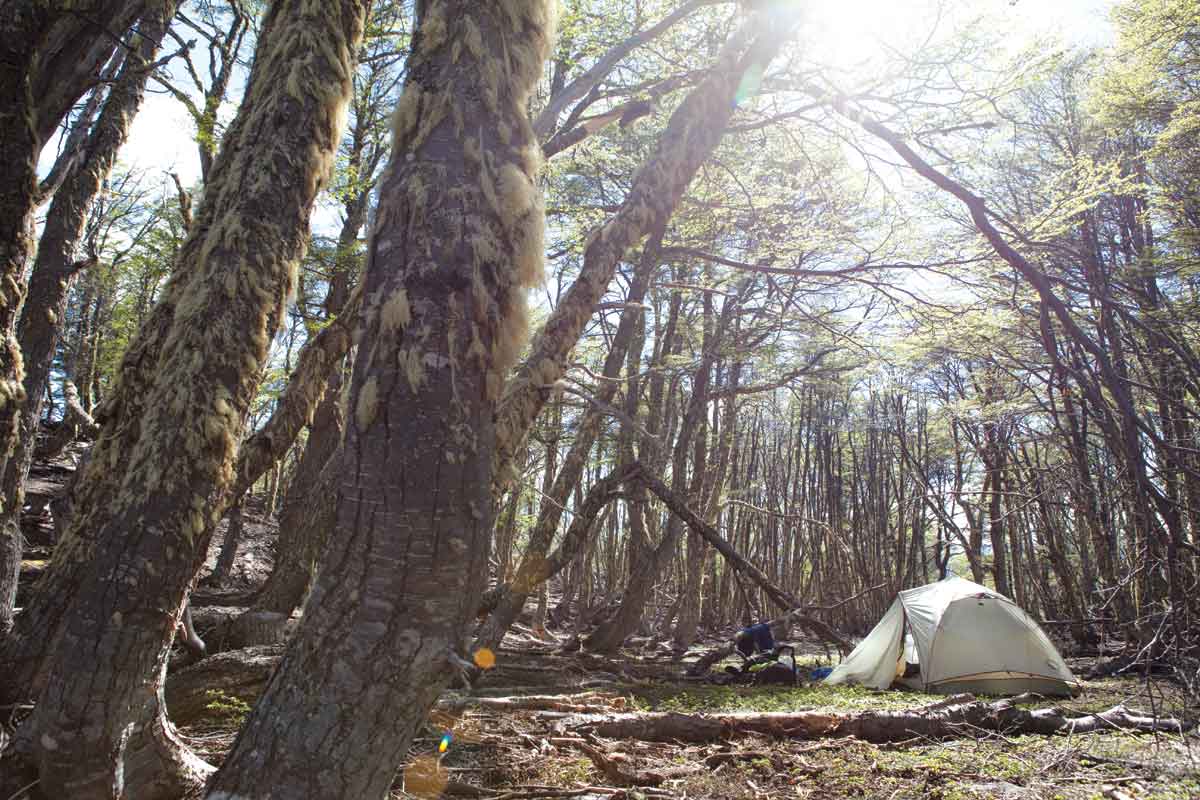
Volunteers rough it. Though it’s too late to apply for this year’s volunteer program, you can submit an application for 2016 here. Accepted participants pay a $600 fee and pitch their tents near work sites (above).
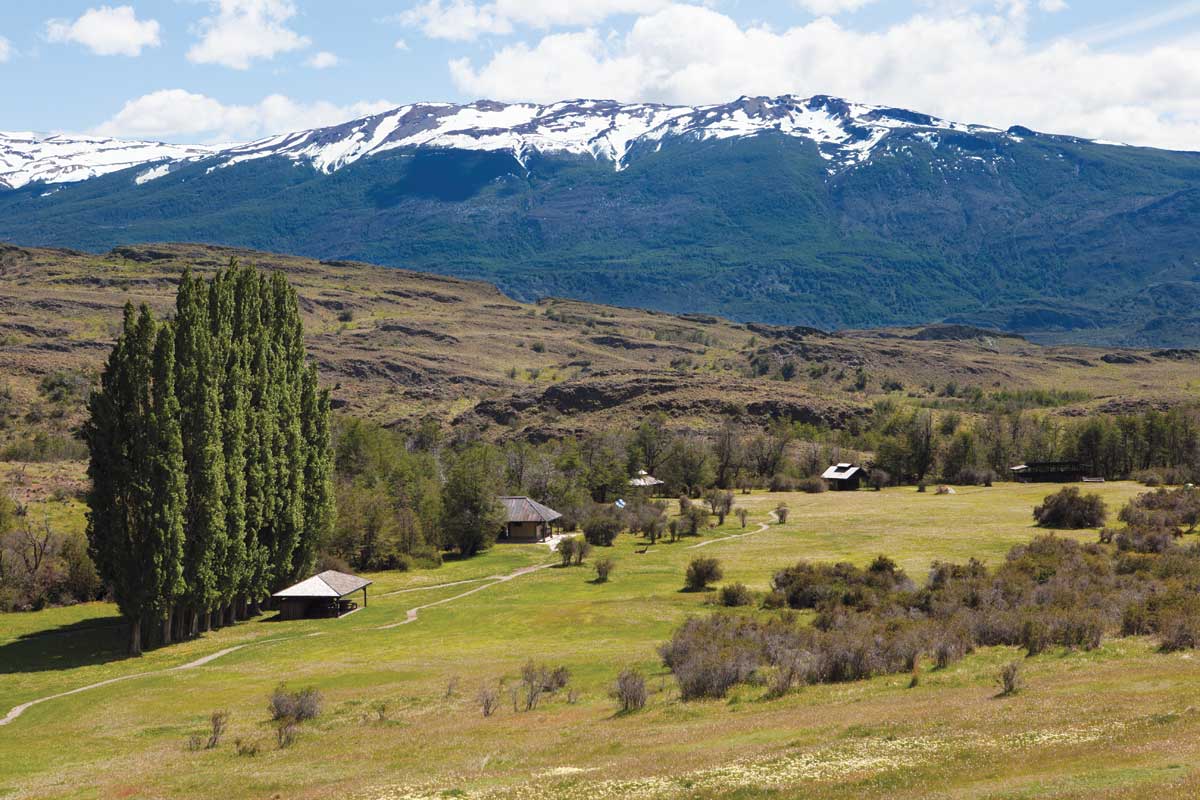
Campers enjoy hot showers. The West Winds (above) and Stone House campgrounds are open from October 1 to April 30, on a first-come, first-served basis, for $10 per night. Both sites include access to sheltered and flush toilets.
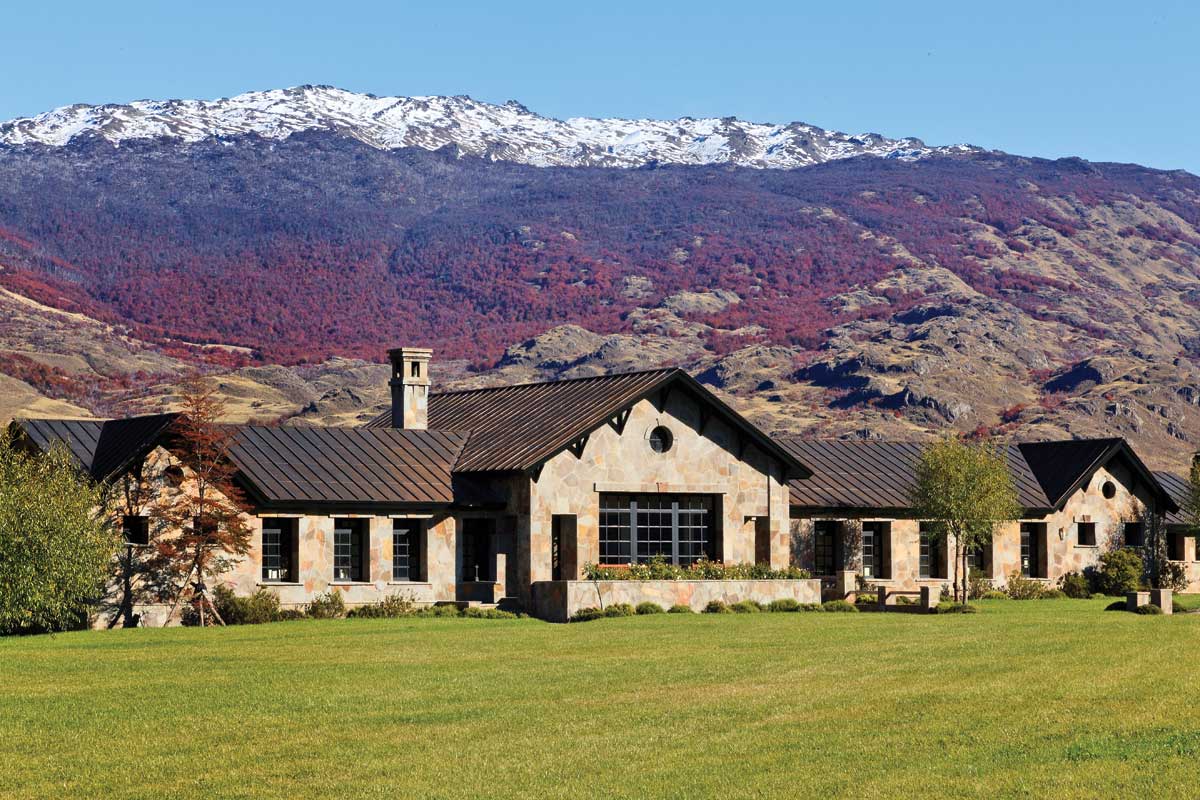
Vacationers luxuriate at the lodge. Far less rustic accommodations are available at the Lodge at Valle Chacabuco (above), also open from October through April. Rates, which include breakfast, range from $150 to $350 per person per night. (For reservations, email [email protected].)
Connie McCabe, a former associate editor at Saveur and Latin American correspondent for Travel+Leisure, lived in Santiago, Chile, for 15 years.
Follow us
This work is licensed under a Creative Commons Attribution-NoDerivatives 4.0 International License.
Want to republish a Modern Farmer story?
We are happy for Modern Farmer stories to be shared, and encourage you to republish our articles for your audience. When doing so, we ask that you follow these guidelines:
Please credit us and our writers
For the author byline, please use “Author Name, Modern Farmer.” At the top of our stories, if on the web, please include this text and link: “This story was originally published by Modern Farmer.”
Please make sure to include a link back to either our home page or the article URL.
At the bottom of the story, please include the following text:
“Modern Farmer is a nonprofit initiative dedicated to raising awareness and catalyzing action at the intersection of food, agriculture, and society. Read more at <link>Modern Farmer</link>.”
Use our widget
We’d like to be able to track our stories, so we ask that if you republish our content, you do so using our widget (located on the left hand side of the article). The HTML code has a built-in tracker that tells us the data and domain where the story was published, as well as view counts.
Check the image requirements
It’s your responsibility to confirm you're licensed to republish images in our articles. Some images, such as those from commercial providers, don't allow their images to be republished without permission or payment. Copyright terms are generally listed in the image caption and attribution. You are welcome to omit our images or substitute with your own. Charts and interactive graphics follow the same rules.
Don’t change too much. Or, ask us first.
Articles must be republished in their entirety. It’s okay to change references to time (“today” to “yesterday”) or location (“Iowa City, IA” to “here”). But please keep everything else the same.
If you feel strongly that a more material edit needs to be made, get in touch with us at [email protected]. We’re happy to discuss it with the original author, but we must have prior approval for changes before publication.
Special cases
Extracts. You may run the first few lines or paragraphs of the article and then say: “Read the full article at Modern Farmer” with a link back to the original article.
Quotes. You may quote authors provided you include a link back to the article URL.
Translations. These require writer approval. To inquire about translation of a Modern Farmer article, contact us at [email protected]
Signed consent / copyright release forms. These are not required, provided you are following these guidelines.
Print. Articles can be republished in print under these same rules, with the exception that you do not need to include the links.
Tag us
When sharing the story on social media, please tag us using the following: - Twitter (@ModFarm) - Facebook (@ModernFarmerMedia) - Instagram (@modfarm)
Use our content respectfully
Modern Farmer is a nonprofit and as such we share our content for free and in good faith in order to reach new audiences. Respectfully,
No selling ads against our stories. It’s okay to put our stories on pages with ads.
Don’t republish our material wholesale, or automatically; you need to select stories to be republished individually.
You have no rights to sell, license, syndicate, or otherwise represent yourself as the authorized owner of our material to any third parties. This means that you cannot actively publish or submit our work for syndication to third party platforms or apps like Apple News or Google News. We understand that publishers cannot fully control when certain third parties automatically summarize or crawl content from publishers’ own sites.
Keep in touch
We want to hear from you if you love Modern Farmer content, have a collaboration idea, or anything else to share. As a nonprofit outlet, we work in service of our community and are always open to comments, feedback, and ideas. Contact us at [email protected].by Connie McCabe, Modern Farmer
October 19, 2015
Modern Farmer Weekly
Solutions Hub
Innovations, ideas and inspiration. Actionable solutions for a resilient food system.
ExploreExplore other topics
Share With Us
We want to hear from Modern Farmer readers who have thoughtful commentary, actionable solutions, or helpful ideas to share.
SubmitNecessary cookies are absolutely essential for the website to function properly. This category only includes cookies that ensures basic functionalities and security features of the website. These cookies do not store any personal information.
Any cookies that may not be particularly necessary for the website to function and are used specifically to collect user personal data via analytics, ads, other embedded contents are termed as non-necessary cookies.